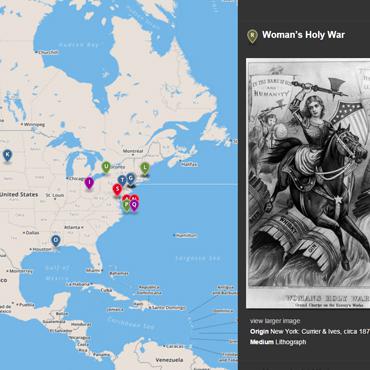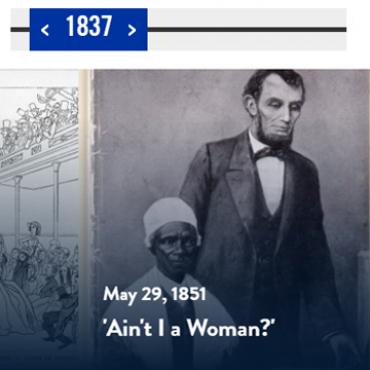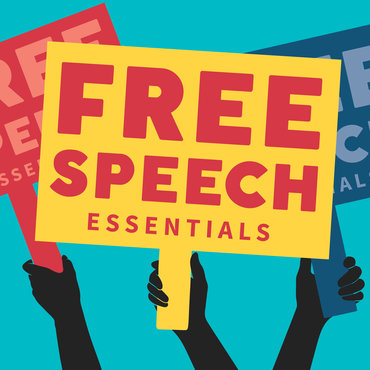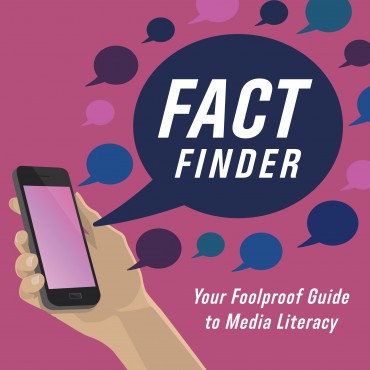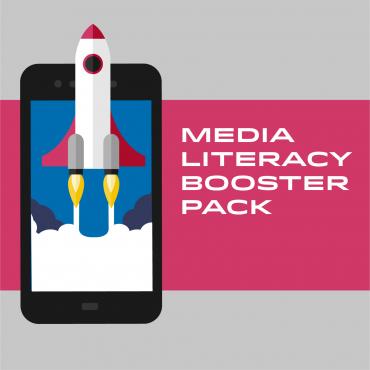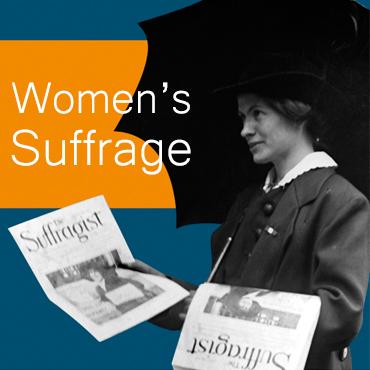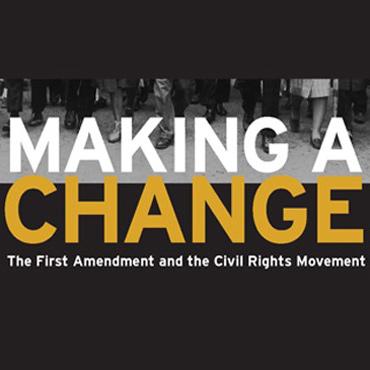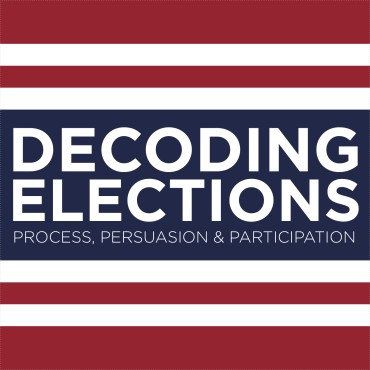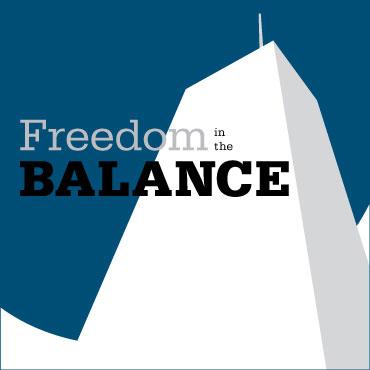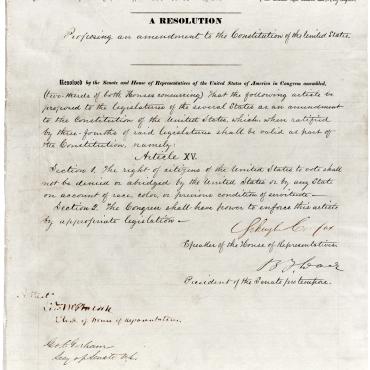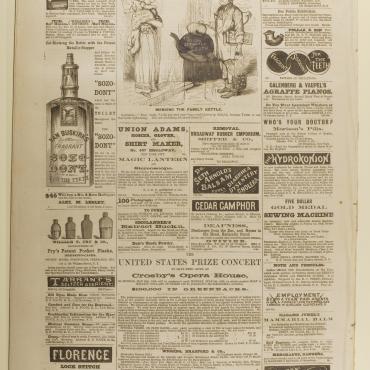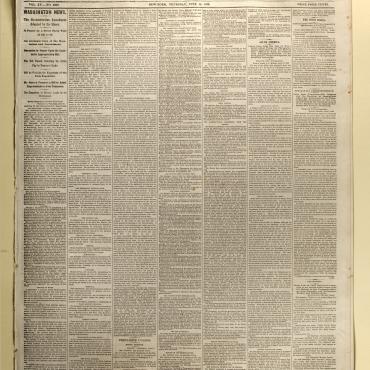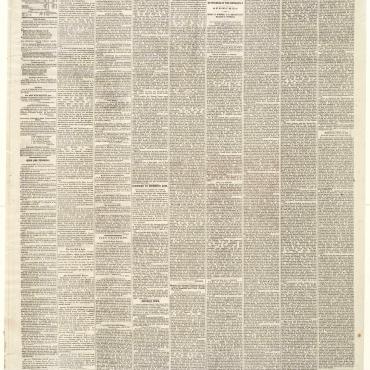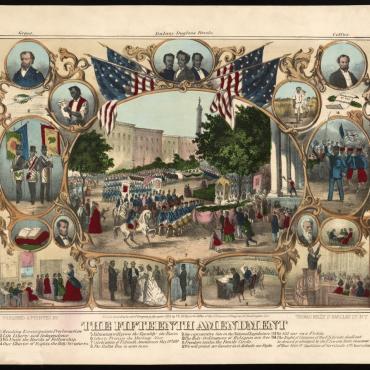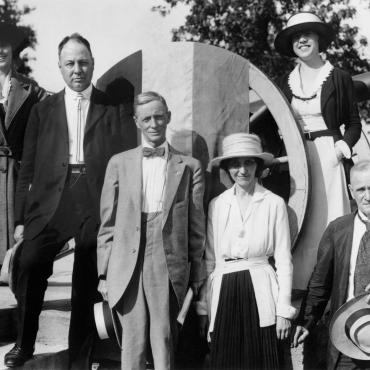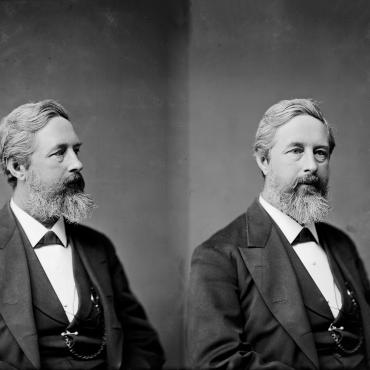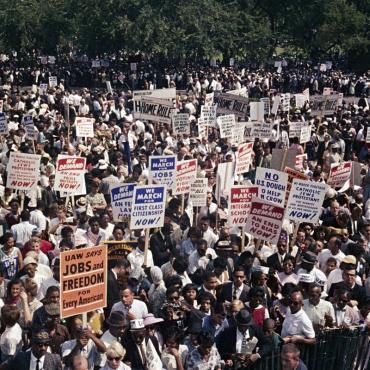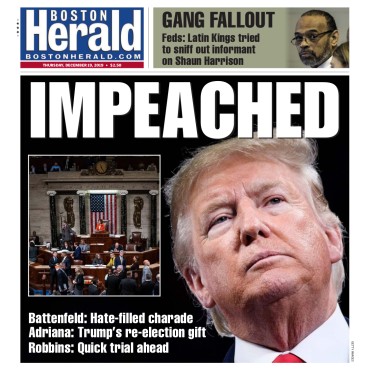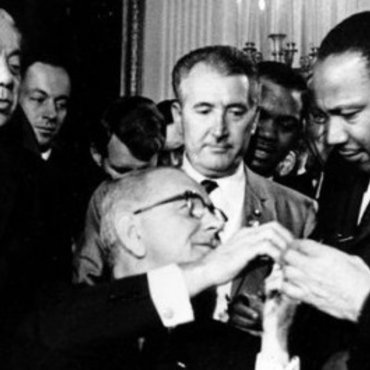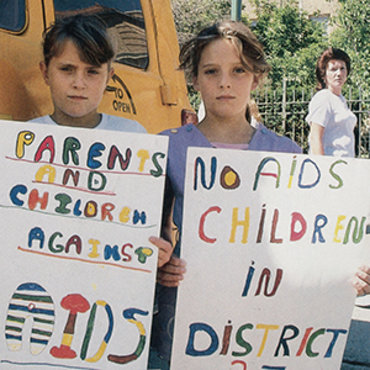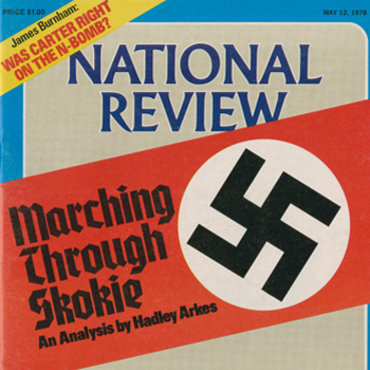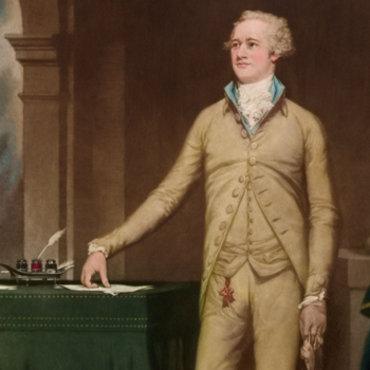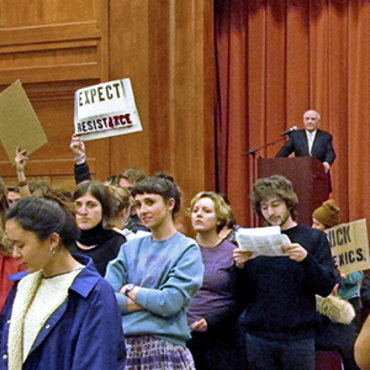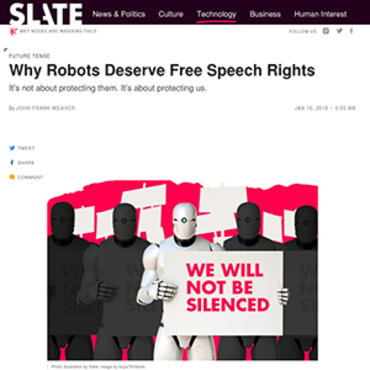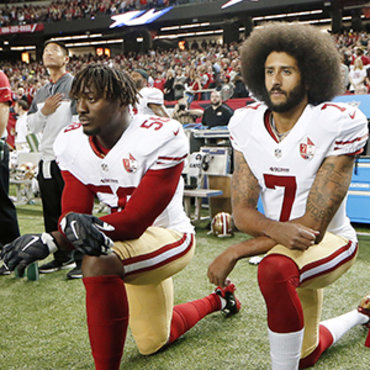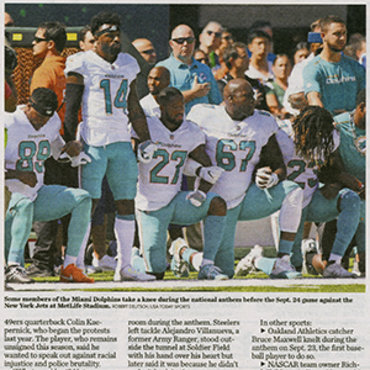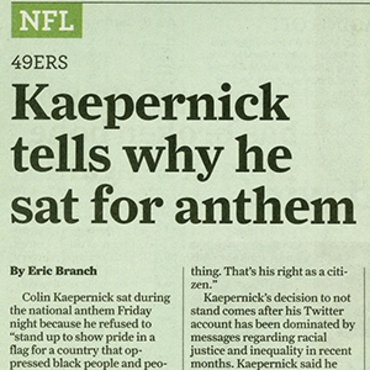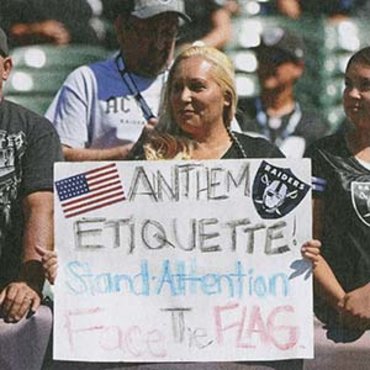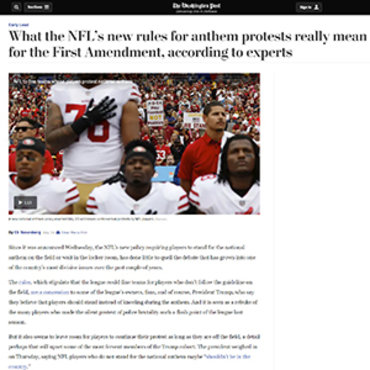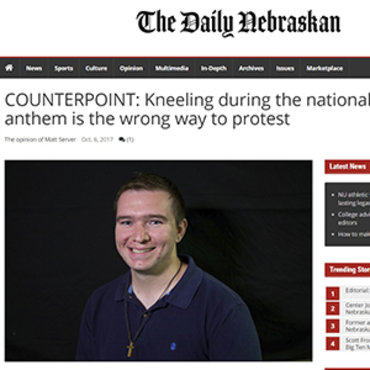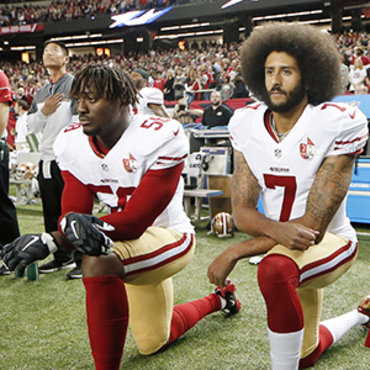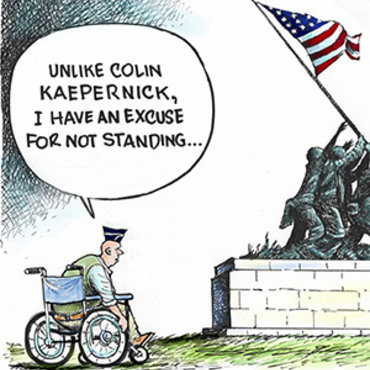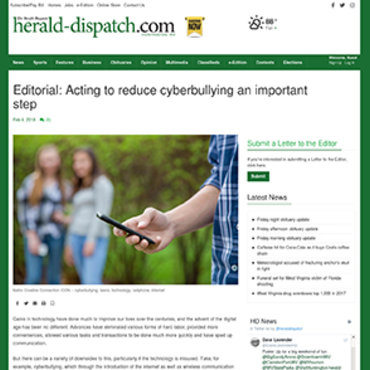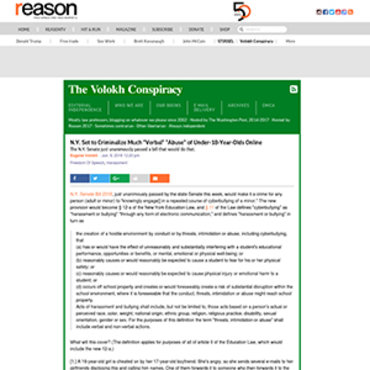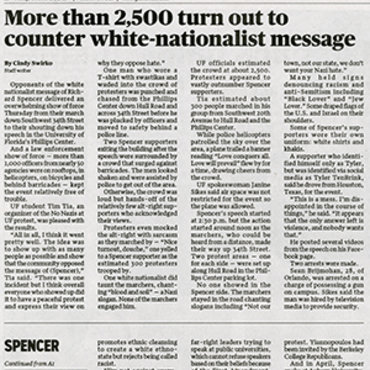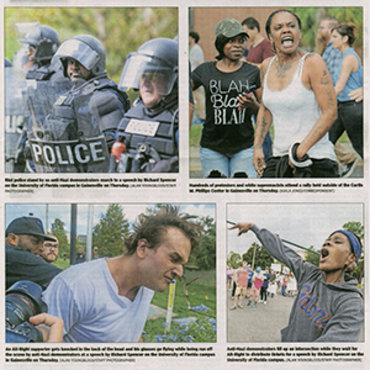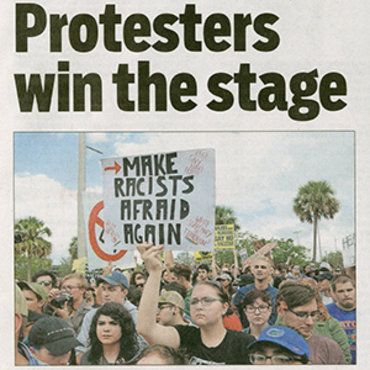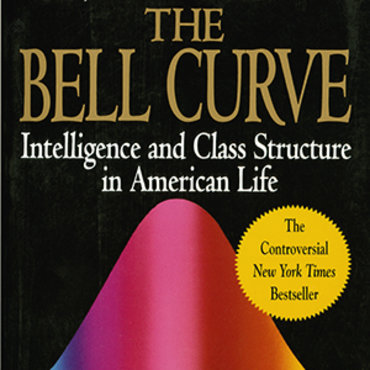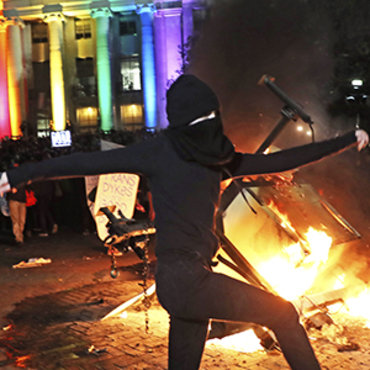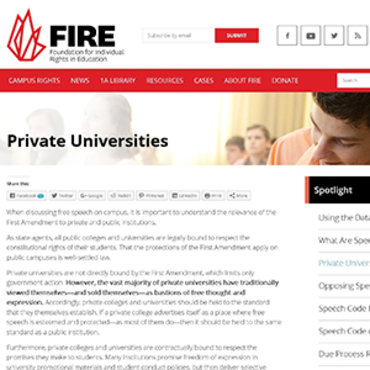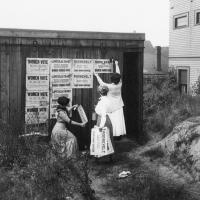
The Freedom to Make a Change
Students trace how groups throughout U.S. history have used their First Amendment freedoms to effect change, then evaluate the outcomes of the groups' actions.
Get even more great free content!
This content contains copyrighted material that requires a free NewseumED account.
Registration is fast, easy, and comes with 100% free access to our vast collection of videos, artifacts, interactive content, and more.
NewseumED is provided as a free educational resource and contains copyrighted material. Registration is required for full access. Signing up is simple and free.
With a free NewseumED account, you can:
- Watch timely and informative videos
- Access expertly crafted lesson plans
- Download an array of classroom resources
- and much more!
- Civil Rights
- Constitution
- Current Events
- Women's Rights
- 7-12
(Note: For more support, see expanded procedure in downloadable lesson plan.)
- In advance, review the sample worksheet at the end of the downloadable lesson packet.
- With students, review the First Amendment, discuss each freedom and explain how groups have been able to use these freedoms to try to change our nation’s laws.
- Divide the class into six groups, assign each a case study from "The Freedom to Make a Change Posters" on NewseumED's Pinterest board, and have them complete Part I of The Freedom to Make a Change worksheet.
- Have each group summarize Part I and discuss what each group learned.
- Ask the class if each of their case studies were successful.
- Then have each group complete Part II and revise the action plan of the group they studied.
- The Freedom to Make a Change worksheet (download), one per student
- First Amendment Basics handout (optional, download)
- Internet access to view NewseumED's Pinterest board
Students present their plans to the class and discuss the changes they would have made to improve the results of the group they studied. Prompts include:
- Does your revised plan use the same First Amendment freedoms as in the original case study? Are they used in the same ways?
- Which of your changes do you think would have the greatest impact, and why?
- What obstacles do you think your revised plan would face if you could travel back in time and attempt to enact it? Would you be able to overcome these obstacles? If so, how? If not, why not?
-
Common Core State Standards: CCSS.ELA-LITERACY.CCRA.R.1
Read closely to determine what the text says explicitly and to make logical inferences from it; cite specific textual evidence when writing or speaking to support conclusions drawn from the text. -
Common Core State Standards: CCSS.ELA-LITERACY.CCRA.R.3
Analyze how and why individuals, events, or ideas develop and interact over the course of a text. -
Common Core State Standards: CCSS.ELA-LITERACY.CCRA.SL.1
Prepare for and participate effectively in a range of conversations and collaborations with diverse partners, building on others' ideas and expressing their own clearly and persuasively.
-
National Center for History in the Schools: NCHS.US History.Era 8
Standard 1: The causes of the Great Depression and how it affected American society Standard 2: How the New Deal addressed the Great Depression, transformed American federalism, and initiated the welfare state Standard 3: The causes and course of World War II, the character of the war at home and abroad, and its reshaping of the U.S. role in world affairs -
National Center for History in the Schools: NCHS.US History.Era 9
Standard 1: The economic boom and social transformation of postwar United States Standard 2: How the Cold War and conflicts in Korea and Vietnam influenced domestic and international politics Standard 3: Domestic policies after World War II Standard 4: The struggle for racial and gender equality and for the extension of civil liberties
-
Center for Civic Education: CCE.V
A. What is citizenship? B. What are the rights of citizens? C. What are the responsibilities of citizens? D. What civic dispositions or traits of private and public character are important to the preservation and improvement of American constitutional democracy? E. How can citizens take part in civic life?
-
NCSS Curriculum Standards: NCSS 1
Learners will understand how human beings create, learn, share and adapt to culture. -
NCSS Curriculum Standards: NCSS 2
Learners examine the institutions, values and beliefs of people in the past, acquire skills in historical inquiry and interpretation, and gain an understanding of how important historical events and developments have shaped the modern world. -
NCSS Curriculum Standards: NCSS 5
Students know how institutions are formed, maintained and changed, and understand how they influence individuals, groups and other institutions. -
NCSS Curriculum Standards: NCSS 6
Learners will develop an understanding of the principles, processes, structures and institutions of government, and examine how power and authority are or have been obtained in various systems of government. -
NCSS Curriculum Standards: NCSS 10
Learning how to apply civic ideals to inform civic action is essential to participation in a democracy and support for the common good.
